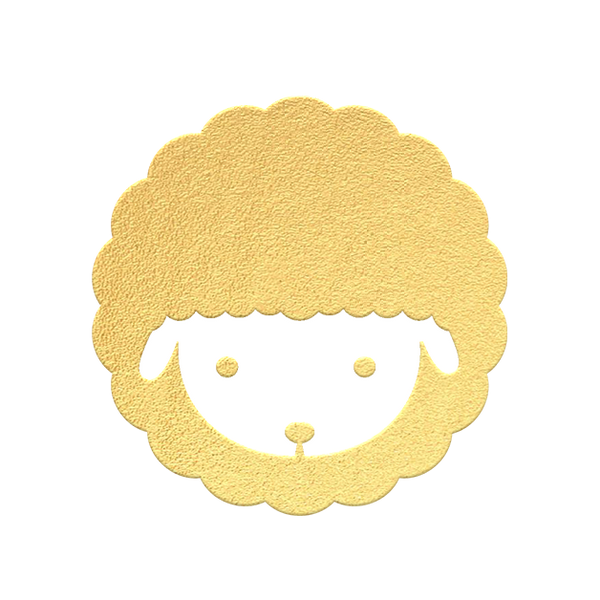
What is the Five Wealth Gods: A Glimpse into Chinese Tradition
Share
The Five Wealth Gods is deeply rooted in folklore and tradition in Chinese culture. These deities are believed to bring prosperity and good fortune and are especially revered during the Chinese New Year. Each of the Five Wealth Gods has a unique story and role, reflecting different aspects of wealth and success. Let's delve into the fascinating legends behind these revered figures.
The Origins of the Five Wealth Gods
The Five Wealth Gods are collectively known as the "Five Roads", as they are believed to preside over wealth in the five cardinal directions: east, south, west, north, and center. This concept symbolizes the idea that wealth can be obtained from all directions, ensuring prosperity in every aspect of life.
The belief in the Five Wealth Gods originates from ancient Chinese philosophy and the development of commerce. According to the theory of the Five Elements (Wu Xing, 五行), the universe is vast, and wealth should be managed in different regions. Therefore, the Five Wealth Gods were assigned to oversee wealth in the five directions.
Folk legends also associate the Five Wealth Gods with road deities. Since ancient times, people have believed that roads are essential for the circulation of goods and wealth. As a result, the deities of roads (or "traveling gods") were highly venerated and regarded as wealth gods.
Who Are They?
The Five Wealth Gods and Their Legends
Eastern Wealth God: Bi Gan (比干)
Bi Gan was a loyal minister of the Shang Dynasty, known for his integrity and wisdom. He served under King Zhou, who was infamous for his tyrannical rule. Bi Gan frequently offered sound advice to the king, but his efforts were met with hostility.

🔹 Legend: In a dramatic act of protest, Bi Gan removed his own heart to demonstrate his loyalty and selflessness. Because he had no heart and thus no bias, he was seen as the epitome of fairness. As a result, he was honored as the Eastern Wealth God, symbolizing impartiality and justice in financial matters.
Western Wealth God: Guan Yu (关羽)
Guan Yu, also known as Guan Gong, was a legendary general during the Three Kingdoms period. He is renowned for his loyalty, righteousness, and martial prowess.

🔹 Legend: His unwavering loyalty and bravery made him a symbol of honor and integrity. In addition to being a revered martial deity, Guan Yu is also worshipped as the Western Wealth God. His association with wealth stems from the belief that his virtues attract prosperity and protect businesses from harm.
Southern Wealth God: Chai Rong (柴荣)
Chai Rong was the Emperor of the Later Zhou Dynasty during the Five Dynasties and Ten Kingdoms period. He is remembered for his efforts to unify China and his contributions to economic prosperity.

🔹 Legend: His reign was marked by policies that promoted commerce and agriculture. His early life as a successful merchant played a significant role in his association with wealth. After his death, he was deified as the Southern Wealth God, symbolizing hard work, strategic planning, and economic stability.
Northern Wealth God: Zhao Gongming (赵公明)
Zhao Gongming is a prominent figure in the Ming Dynasty novel "Investiture of the Gods" (封神演义). Originally a powerful sorcerer, he was killed in battle but was later deified as the Northern Wealth God by the sage Jiang Ziya.

🔹 Legend: Zhao Gongming is often depicted riding a black tiger and holding a steel whip and a gold ingot. He is accompanied by four subordinates, known as the Four Wealth Deities:
Xiao Sheng (招宝天尊萧升)
Cao Bao (纳珍天尊曹宝)
Chen Jiugong (招财使者陈九公)
Yao Shaosi (利市仙官姚少司)
Together, they are responsible for bestowing wealth and prosperity. Zhao Gongming's fierce yet just nature makes him a popular figure in Chinese folklore.
Central Wealth God: Wang Hai (王亥)
Wang Hai was a ruler of the Shang Dynasty and is credited with pioneering trade and commerce. He encouraged his people to engage in barter trade, using oxen-drawn carts to transport goods.

🔹 Legend: This innovation boosted the economy and led to the development of commerce. Wang Hai is thus honored as the Central Wealth God, symbolizing the origins of trade and economic innovation.
The Use of Five Wealth Gods Charms
In addition to traditional worship, many people use the Five Wealth Gods charms to attract prosperity and good fortune. These charms are believed to invoke the blessings of the Five Wealth Gods and enhance the flow of positive energy (Qi) in one's environment.
miemie gift Wu Lu Cai Shen Fu Fulu| Five RoutesWealth God Talisman
People place these charms in their homes or offices, facing different directions to maximize their effectiveness. The charm is believed to not only attract wealth but also protect against negative influences and promote overall well-being.
Explore Feng Shui wisdom & cultural stories with Miemie Gift, and find lucky charms & fortune-boosting gifts in our shop now!

